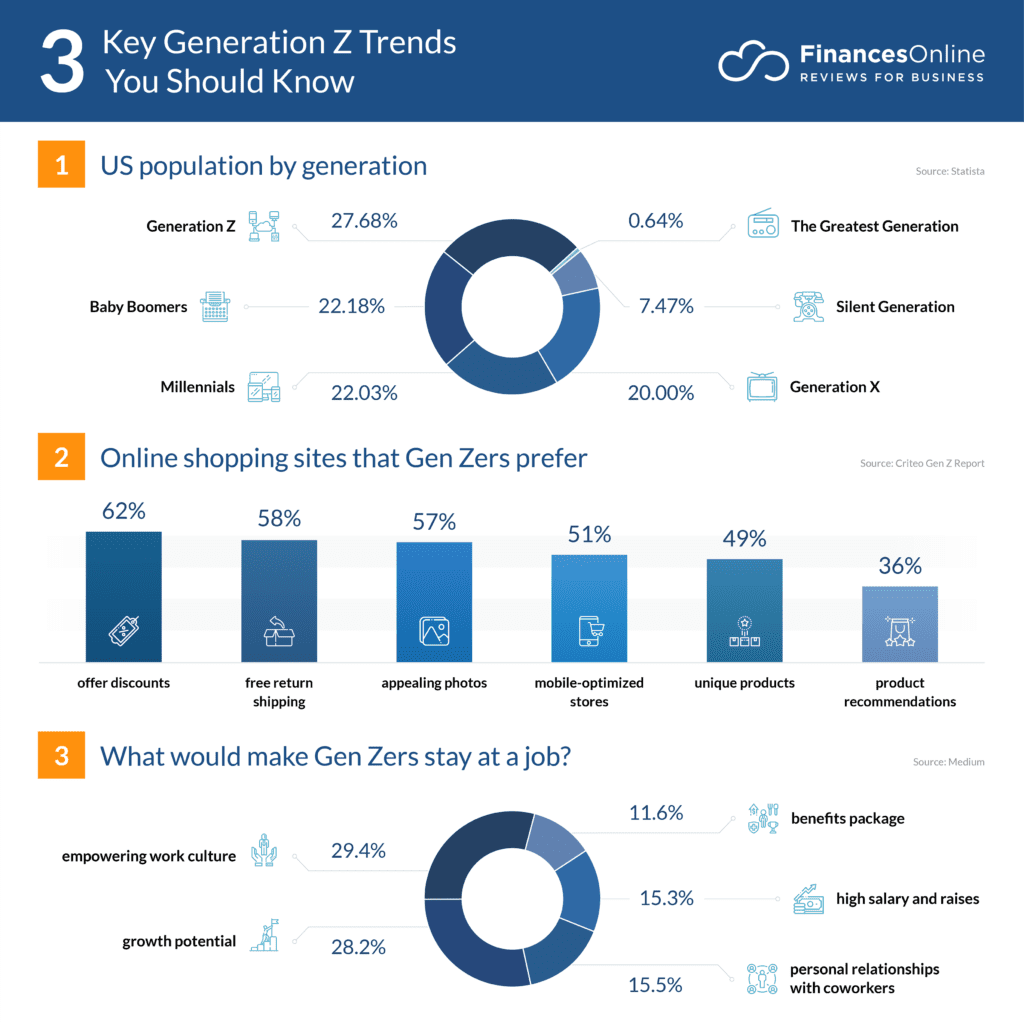
Introduction
Gen Z, the generation born between the mid-1990s and early 2010s, is quickly becoming a force to be reckoned with in the business world. With their unique characteristics and preferences, they are reshaping various industries, including sponsorship.
Overview of Gen Z and their influence on sponsorship preferences
Gen Z is the first generation to grow up entirely in the digital age. They are tech-savvy, socially conscious, and value authenticity. These factors have a significant impact on their sponsorship preferences.
- Authenticity over celebrity: Unlike previous generations, Gen Z is less interested in traditional celebrity endorsements. They prefer brands that align with their values and demonstrate authenticity. They are more likely to support sponsors who engage in meaningful social causes and have a genuine connection with their target audience.
- Interactive experiences: Gen Z craves interactive experiences that go beyond passive consumption. They want to actively participate and engage with brands. Sponsors that provide immersive experiences through augmented reality, virtual reality, or gamification are more likely to capture their attention.
- Digital platforms: Gen Z is highly connected online, spending a significant amount of time on social media platforms like Instagram, TikTok, and YouTube. Sponsors need to leverage these platforms to reach and engage with this generation effectively. Influencer marketing and user-generated content are particularly effective strategies for capturing Gen Z’s attention.
- Social responsibility: Gen Z is passionate about social and environmental issues. They expect sponsors to be socially responsible and actively contribute to making a positive impact on society. Sponsors that align with their values and support causes they care about are more likely to gain their loyalty.
In conclusion, understanding Gen Z’s unique characteristics and preferences is crucial for sponsors looking to connect with this influential generation. By embracing authenticity, providing interactive experiences, leveraging digital platforms, and demonstrating social responsibility, sponsors can effectively engage with Gen Z and build long-lasting relationships.
Understanding Gen Z

Characteristics and behaviors of Gen Z
Gen Z, also known as the post-millennial generation, refers to individuals born between the mid-1990s and early 2010s. This generation has grown up in a digital world, surrounded by technology and social media. Understanding their characteristics and behaviors is crucial for businesses looking to effectively target and engage with this demographic.
- Digital Natives: Gen Z has never known a world without smartphones, social media, and instant access to information. They are highly tech-savvy and have a strong preference for digital communication channels.
- Authenticity: This generation values authenticity and transparency. They are more likely to trust brands that are genuine and socially responsible. Gen Z wants to see real people and real experiences, rather than polished advertisements.
- Short Attention Spans: Growing up in an era of information overload, Gen Z has developed shorter attention spans. They prefer bite-sized content that can be consumed quickly and easily.
- Preference for Personalization: Gen Z expects personalized experiences and offerings. They want brands to understand their individual needs and preferences, and tailor their marketing efforts accordingly.
- Socially Conscious: Gen Z is passionate about social issues and expects brands to take a stand on important matters. They are more likely to support companies that align with their values and actively contribute to social causes.
When it comes to sponsorship preferences, Gen Z tends to gravitate towards brands that align with their values, offer unique experiences, and provide opportunities for engagement. They are more interested in authentic partnerships that go beyond traditional advertising methods.
Overall, understanding the characteristics and behaviors of Gen Z is essential for businesses looking to effectively engage with this influential demographic through sponsorship initiatives.
Importance of Sponsorship
Exploring the significance of sponsorship in marketing strategies
Sponsorship has become an integral part of marketing strategies, and understanding its impact on target audiences is crucial for businesses. With the rise of Generation Z, born between 1997 and 2012, it is essential to recognize their preferences when it comes to sponsorship.
Gen Z is a generation that values authenticity and meaningful connections. They are highly aware of marketing tactics and can easily detect inauthenticity. This makes sponsorship an effective way to reach this demographic as it allows brands to align themselves with causes and events that resonate with Gen Z’s values.
One key impact of Gen Z on sponsorship preferences is the shift towards social responsibility. This generation is passionate about social issues and expects brands to take a stand on important matters. They are more likely to support brands that actively engage in corporate social responsibility initiatives and sponsor events with a purpose.
Another significant aspect is the digital landscape. Gen Z is the first generation to grow up fully immersed in technology and social media. They are highly connected and seek experiences that are shareable and interactive. Brands that incorporate digital elements into their sponsorships, such as interactive activations or social media campaigns, are more likely to capture Gen Z’s attention and engagement.
In conclusion, understanding the impact of Gen Z on sponsorship preferences is crucial for businesses looking to connect with this influential demographic. By aligning with their values, engaging in social responsibility initiatives, and incorporating digital elements, brands can effectively leverage sponsorship to build meaningful connections with Gen Z consumers.

Gen Z’s Engagement with Sponsorship
How Gen Z interacts and engages with sponsored content
Gen Z, the generation born between the mid-1990s and early 2010s, is known for its digital fluency and ability to navigate the online world with ease. When it comes to sponsored content, this generation has a unique approach that sets them apart from previous generations.
Unlike their predecessors, Gen Z is highly skeptical of traditional advertising. They have grown up in an era where they are constantly bombarded with ads and have developed a keen sense of discernment. As a result, they are more likely to engage with sponsored content that aligns with their interests and values.
Gen Z values authenticity above all else. They want to see real people using and endorsing products or services, rather than polished advertisements featuring celebrities. Influencer marketing has become a powerful tool for brands looking to connect with this generation. Gen Z is more likely to trust recommendations from influencers they follow and admire.
Another key aspect of Gen Z’s engagement with sponsorship is their desire for interactive and immersive experiences. They are more likely to engage with sponsored content that allows them to participate or be part of a larger narrative. This can include interactive quizzes, challenges, or user-generated content campaigns.
In summary, Gen Z’s engagement with sponsorship is driven by their preference for authenticity and interactive experiences. Brands that can tap into these preferences are more likely to capture the attention and loyalty of this influential generation.
Gen Z’s Preferences in Sponsorship
Factors that influence Gen Z’s preference for sponsored brands
Gen Z, the generation born between the mid-1990s and early 2010s, has emerged as a key target market for brands. Understanding their preferences in sponsorship is crucial for businesses looking to effectively engage with this demographic.
- Authenticity: Gen Z values authenticity above all else. They are highly skeptical of traditional advertising and can easily spot inauthentic sponsorships. Brands that align with their values and demonstrate genuine support for causes or issues important to them are more likely to gain their trust and loyalty.
- Relevance: Gen Z expects sponsorships to be relevant to their interests and lifestyle. They are more likely to engage with brands that align with their passions, hobbies, or communities. Brands that can demonstrate a genuine understanding of Gen Z’s preferences and offer tailored experiences or content are more likely to resonate with this audience.
- Transparency: Gen Z appreciates transparency from brands. They want to know the details of the sponsorship arrangement and understand how it benefits both the brand and the sponsored entity. Brands that are open about their partnerships and communicate the value they bring to their sponsored events or individuals are more likely to earn Gen Z’s respect and support.
- Creative storytelling: Gen Z responds well to creative storytelling in sponsorships. They appreciate brands that can tell compelling narratives and create immersive experiences through their sponsorship activities. Brands that can captivate Gen Z’s attention and evoke emotions through their storytelling efforts are more likely to leave a lasting impression.
Understanding these factors can help businesses tailor their sponsorship strategies to effectively engage with Gen Z. By prioritizing authenticity, relevance, transparency, and creative storytelling, brands can build meaningful connections with this influential demographic.
Social Media and Influencer Marketing
The role of social media and influencers in Gen Z’s sponsorship preferences
Gen Z, the generation born between the mid-1990s and early 2010s, has a significant impact on the world of marketing and sponsorship. With their strong presence on social media platforms, Gen Z’s sponsorship preferences are heavily influenced by social media and influencer marketing.
Social media has become an integral part of Gen Z’s daily lives. They spend a significant amount of time on platforms like Instagram, TikTok, and YouTube, where they follow their favorite influencers. These influencers have a tremendous influence on Gen Z’s purchasing decisions and brand preferences.
Gen Z values authenticity and transparency, and they trust influencers who are genuine and relatable. They are more likely to engage with sponsored content if it is presented in an authentic way by their favorite influencers. This has led to a rise in influencer marketing, where brands collaborate with influencers to promote their products or services.
Influencer marketing allows brands to reach Gen Z in a more organic and targeted way. By partnering with influencers who align with their brand values, companies can create authentic content that resonates with Gen Z’s interests and aspirations. This approach helps build trust and credibility among Gen Z consumers.
Moreover, social media platforms provide opportunities for brands to engage directly with Gen Z through interactive content, polls, and challenges. This level of engagement fosters a sense of community and allows brands to understand Gen Z’s preferences better.
In conclusion, social media and influencer marketing play a crucial role in shaping Gen Z’s sponsorship preferences. Brands that understand the importance of authenticity, transparency, and engagement on social media platforms are better positioned to connect with this influential generation.
Case Studies
Examples of successful sponsorship campaigns targeting Gen Z
Gen Z, the demographic born between the mid-1990s and early 2010s, has emerged as a powerful consumer group with unique preferences and behaviors. To effectively reach and engage this generation, brands have turned to sponsorship campaigns that align with their interests and values. Here are some notable examples of successful sponsorship campaigns targeting Gen Z:
- Nike and Colin Kaepernick: In 2018, Nike collaborated with former NFL player Colin Kaepernick, known for his activism against racial injustice, for their “Just Do It” campaign. This partnership resonated strongly with Gen Z, who value authenticity and social causes. The campaign generated significant buzz and received both praise and criticism, but ultimately strengthened Nike’s connection with this generation.
- Red Bull and extreme sports: Red Bull has long been associated with extreme sports and adrenaline-fueled activities. They have sponsored events like the Red Bull Rampage mountain biking competition and the Red Bull Air Race. These sponsorships align perfectly with Gen Z’s love for adventure, pushing boundaries, and seeking unique experiences.
- Spotify and music festivals: Music is a significant part of Gen Z’s identity, and Spotify recognized this by partnering with popular music festivals like Coachella and Lollapalooza. Through these sponsorships, Spotify offers exclusive playlists, artist collaborations, and personalized recommendations to festival-goers, enhancing their music experience.
- Adidas and sustainability: Gen Z is passionate about environmental sustainability, and Adidas has tapped into this by launching sustainable initiatives like their partnership with Parley for the Oceans. Through this collaboration, Adidas creates shoes made from recycled ocean plastic, appealing to Gen Z’s desire for eco-friendly products.
These case studies demonstrate the importance of understanding Gen Z’s values and interests when developing sponsorship campaigns. By aligning with their passions and creating authentic connections, brands can effectively engage this influential consumer group.

Future Trends and Recommendations
Predictions for the future of sponsorship and recommendations for brands targeting Gen Z
As Gen Z continues to grow in influence and spending power, it is crucial for brands to understand their preferences when it comes to sponsorship. Here are some predictions for the future of sponsorship and recommendations for brands targeting Gen Z:
- Authenticity is key: Gen Z values authenticity and transparency. Brands should focus on creating genuine partnerships with influencers or organizations that align with their values. This means moving away from traditional, sales-focused sponsorships and towards collaborations that provide real value to Gen Z consumers.
- Engagement through experiences: Gen Z craves experiences over material possessions. Brands should consider sponsoring events or creating immersive experiences that allow Gen Z consumers to engage with their products or services in a meaningful way. This could include pop-up shops, interactive installations, or exclusive access to behind-the-scenes content.
- Social media integration: Social media plays a significant role in the lives of Gen Z. Brands should leverage social media platforms to connect with this audience and integrate their sponsorships seamlessly into the content they consume. This could involve working with influencers who have a strong presence on platforms like TikTok or Instagram.
- Supporting social causes: Gen Z is passionate about social issues and expects brands to take a stand on important causes. Brands should consider sponsoring initiatives that align with these values, such as environmental sustainability or social justice campaigns.
- Data-driven insights: To effectively target Gen Z, brands need to leverage data-driven insights to understand their preferences and behaviors. This includes analyzing social media trends, conducting surveys, and gathering feedback from Gen Z consumers.
By adapting to these future trends and recommendations, brands can effectively engage with Gen Z through sponsorship and build long-lasting relationships with this influential demographic.
Conclusion
Summary of the impact of Gen Z on sponsorship preferences and key takeaways
Gen Z, the generation born between 1997 and 2012, has a significant impact on sponsorship preferences. They have grown up in a digital age, where social media and online platforms play a crucial role in their lives. As a result, traditional forms of sponsorship are becoming less effective in reaching this audience.
One key takeaway is that Gen Z values authenticity and transparency. They are more likely to engage with brands that align with their values and have a genuine connection with their audience. This means that sponsors need to focus on building meaningful relationships with Gen Z consumers rather than simply promoting their products or services.
Another important aspect is the rise of influencer marketing. Gen Z looks up to social media influencers and trusts their recommendations. Sponsors can leverage this by partnering with relevant influencers who resonate with Gen Z’s interests and values.
Furthermore, Gen Z prefers experiences over material possessions. They are more interested in attending events or participating in activities rather than receiving branded merchandise. Sponsors should consider creating immersive experiences that allow Gen Z to engage with their brand on a personal level.
In conclusion, understanding the impact of Gen Z on sponsorship preferences is crucial for brands looking to connect with this generation. By focusing on authenticity, influencer marketing, and creating memorable experiences, sponsors can effectively engage with Gen Z and build long-lasting relationships.

